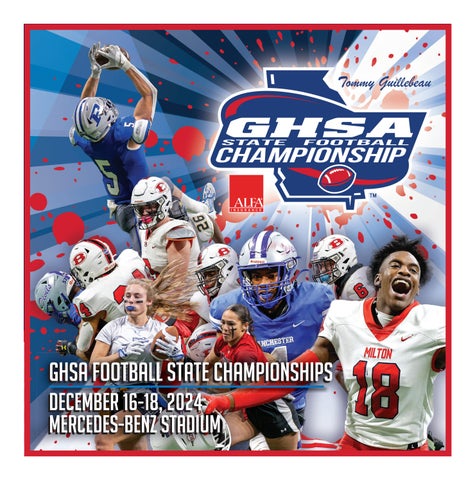NIL
2025 NBA Draft stay-or-go decisions: 11 that loom large for 2025-26 college basketball season
The call of the NBA is an ever-present threat for college basketball rosters. What can look like a stacked roster for next season could lose a surprising piece that undercuts a possible national championship contender. With the advent of name, image and likeness (and the resultant influx of cash for top players), college hoops has […]
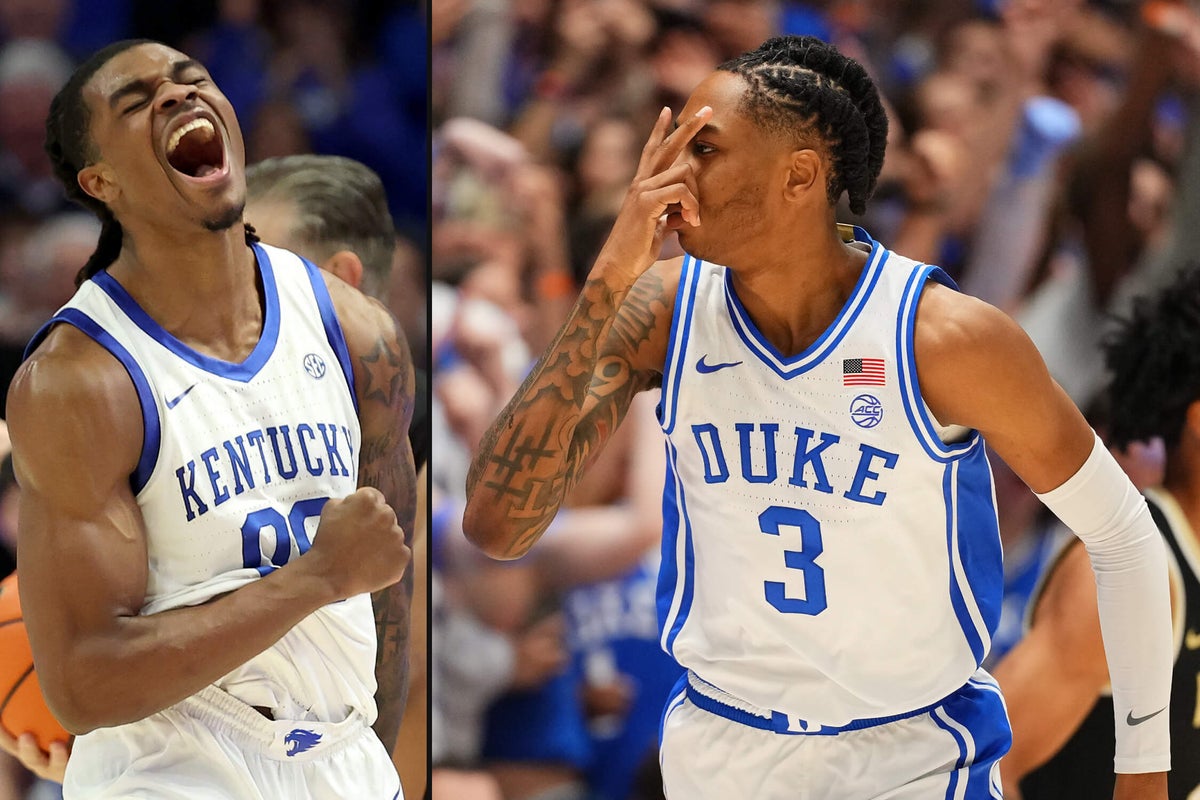
The call of the NBA is an ever-present threat for college basketball rosters. What can look like a stacked roster for next season could lose a surprising piece that undercuts a possible national championship contender.
With the advent of name, image and likeness (and the resultant influx of cash for top players), college hoops has fought back. Potential draftees, especially those late in the first round and into the second, now have to consider the NIL payday they would forgo should they choose to start their professional careers. They have until June 15 to withdraw their names from the draft pool.
That’s led to some surprising returners to college. A year ago, Walter Clayton Jr. chose to chase a national title rather than enter the pro ranks; that turned out well for Clayton and the Gators. Johni Broome also eschewed the draft and helped power Auburn to the Final Four. As chaotic and entertaining as the transfer portal is, keeping star-caliber pieces in college is vital to building a truly elite team.
The 2025 early-entry deadline already has some clear winners: Texas Tech managed to convince All-American JT Toppin to avoid testing the waters, and two-time national champion Alex Karaban is returning to UConn for a fourth season. The Red Raiders and the Huskies will likely find their way into many preseason top 10s in part due to this retention of potential draft picks.
Many other decisions that will drastically impact the 2026 national title picture still hang in the balance, though. Following the NBA’s release of the full list of early entrants, the players below all have significant choices that could push their schools to the forefront of the college basketball world.
Note: To illustrate the significance of each decision, we’ve included each team’s national ranking at BartTorvik.com with and without the player on the roster using Torvik’s Roster Cast tool, which allows you to alter teams’ roster constructions to see the impact of individual players.
1. Milos Uzan, Houston
Bart Torvik rank with Uzan: 1
Bart Torvik rank without: 1 (incredibly)
Though most of the Houston headlines all season went to LJ Cryer, Emanuel Sharp and J’Wan Roberts, Uzan was the secret engine to a Cougars squad that came within a possession of a national championship. Taking over at point guard for program legend Jamal Shead, the Oklahoma transfer got off to a slow start, but his steady improvement — particularly as a potent offensive threat — mirrored the trajectory of Houston as a whole. Cougars coach Kelvin Sampson reiterated that point after Uzan’s game-winning layup against Purdue in the Sweet 16.

Milos Uzan averaged 12.3 points, 4.2 assists and shot 44.5 percent on 3-pointers last season. (Bob Donnan / Imagn Images)
With Uzan back in the fold to join Sharp, defensive player of the year candidate JoJo Tugler and a loaded recruiting class, Houston would be a no-doubt top-five team in preseason rankings (and very arguably the No. 1 squad). Without him, though, Houston would need a serious lift from incoming transfer Pop Isaacs, as Uzan’s shot creation — not to mention his smothering defensive presence on the perimeter — would be sorely missed. That would still be a top 10 or so team but with enough questions to perhaps fall below the top tier of contenders.
2. Otega Oweh, Kentucky
Torvik rank with Oweh: 11
Torvik rank without: 16
Mark Pope’s first season in Lexington made it clear the Wildcats are firmly entrenched as contenders in the SEC. Kentucky’s spending in the transfer portal this offseason — basically a Los Angeles Dodgers-esque spree — has given Pope an extremely promising roster for his encore campaign.
To truly be a national championship contender, though, Pope needs Oweh to return for his senior season. The hyperathletic wing, who like Uzan began his career at Oklahoma (apologies to Sooners fans), ascended to stardom for Big Blue Nation. On a deep and balanced roster, Oweh’s athletic slashing and harassing defense became indispensable. He’d give Kentucky the All-American candidate needed to exist in the highest echelon of preseason prognostications.
3. Yaxel Lendeborg, Michigan
Torvik rank with Lendeborg: 4
Torvik rank without: 20
Led by a dominant big man duo in Danny Wolf and Vlad Goldin, Michigan made the Sweet 16 in Dusty May’s first season in Ann Arbor. The Wolverines tripled down on the frontcourt this offseason, reeling in three more gems via the portal: Lendeborg (UAB), Morez Johnson Jr. (Illinois) and Aday Mara (UCLA). That combination would terrorize opponents for 40 minutes at the rim and on the boards.
Whether the trio ever plays together, though, hinges on Lendeborg’s NBA Draft decision. The former junior college star is already an older prospect (he’ll be 23 in September), and he could choose to take his versatile, physical game to the pros. Michigan would still be in good shape without him as a chief contender to Purdue in the Big Ten, but having Lendeborg as a do-it-all double-double machine would raise the ceiling in Ann Arbor considerably.
4. Alex Condon, Florida
Torvik rank with Condon: 9
Torvik rank without: 19
The Gators’ shocking run to the national title came in large part due to a supremely talented trio of shot makers on the perimeter. Clayton, Alijah Martin and Will Richard all had major moments of brilliance during their March run. But Florida’s deep and physical frontcourt was an overlooked aspect of its success.
Todd Golden could cycle body after body in the paint to bludgeon opponents and wear them down over 40 minutes, and Condon and Rueben Chinyelu, the Gators’ two starters, were crucial parts of that rotation. Chinyelu is also gauging NBA interest but is generally expected to return to school; however, the physical Australian Condon is much more of a true toss-up. He struggled in the NCAA Tournament after an ankle injury late in the season, so he could be best served to return to school and show off his talents once more while leading the Florida front line for what would be a top 10-15 team heading into the year.
5. Carter Bryant, Arizona
Torvik rank with Bryant: 4
Torvik rank without: 15
Like Florida, Arizona has two players testing the draft waters, with Jaden Bradley joining Bryant in that endeavor. Bradley is strongly expected to return, though, while the uber-talented Bryant feels like a true coin flip. He came on strong as Arizona’s season progressed; he logged 20-plus minutes just once in Arizona’s first 10 games, but he cracked that mark in 16 of the final 18 contests. In doing so, he displayed the kind of versatility and floor-stretching game that will make pro scouts pay attention.
That seemed like just the beginning for the high-upside forward. He was frequently deferential to Arizona’s veterans on the offensive end, registering the lowest usage in the team’s rotation. Should he return, he’s an obvious breakout candidate with more touches and shots headed his way. If he’s back for that potential star turn, Arizona will be in the Big 12 and national mix, but if not, the Wildcats will be in the second tier of both.
6. Cedric Coward and Isaiah Evans, Duke
Torvik rank with Coward and Evans: 4
Torvik rank without Coward, with Evans: 4
Torvik rank without Evans, with Coward: 5
Torvik rank without both: 7
Duke came within a monumental final-minute collapse against Houston of playing for a national title. Jon Scheyer has done a tremendous job of maintaining Duke’s status among the elite in college basketball, and although his 2025-26 team will not have Cooper Flagg on it, the Blue Devils have the talent to make a return trip to the Final Four.
Even with a killer freshman class, though, a large portion of the upside hinges on whether the nucleus will include Coward, a transfer from Washington State, and Evans, an incendiary scorer due for a major role increase as a sophomore. Both players offer enticing wing skill sets to the NBA, but both could maximize their draft position with a banner year in big roles for an elite team.
7. The ultimate wild cards: PJ Haggerty, Darrion Williams, Boogie Fland, Jamir Watkins
Every member of this foursome remains in the transfer portal as of this writing. Any member of this group could drastically alter the outlook of a team, pushing that squad toward the national title picture.
Haggerty, an All-American scoring guard at Memphis, is an instant cheat code to an efficient offense thanks to his devastating dribble moves, finishing ability inside and knack for getting to the charity stripe. At Texas Tech, Williams proved himself to be a quintessential do-it-all winner capable of serving as a mid-post hub on offense and multipositional force on defense. Fland showed off his scoring and passing genes at Arkansas as a rookie, and he could explode as a sophomore thanks to his prodigious talents. And finally, Watkins (Florida State’s leading scorer last season) is a matchup problem, a big wing/forward who could be an ace second banana for a great team. Keep an eye on whether any of this group chooses to return to college — and where they end up if they do.
(Top photos of Otega Oweh and Isaiah Evans: Andy Lyons, Grant Halverson / Getty Images)
NIL
College sports landscape changed forever with the House vs. NCAA settlement
Over the years, the transfer portal and NIL have completely changed the landscape of college sports. The portal has become the professional sports version of free agency, while NIL funds have varied from school to school, something Virginia Tech has found out over time. When it comes to rules and regulations surrounding NIL, fans have […]
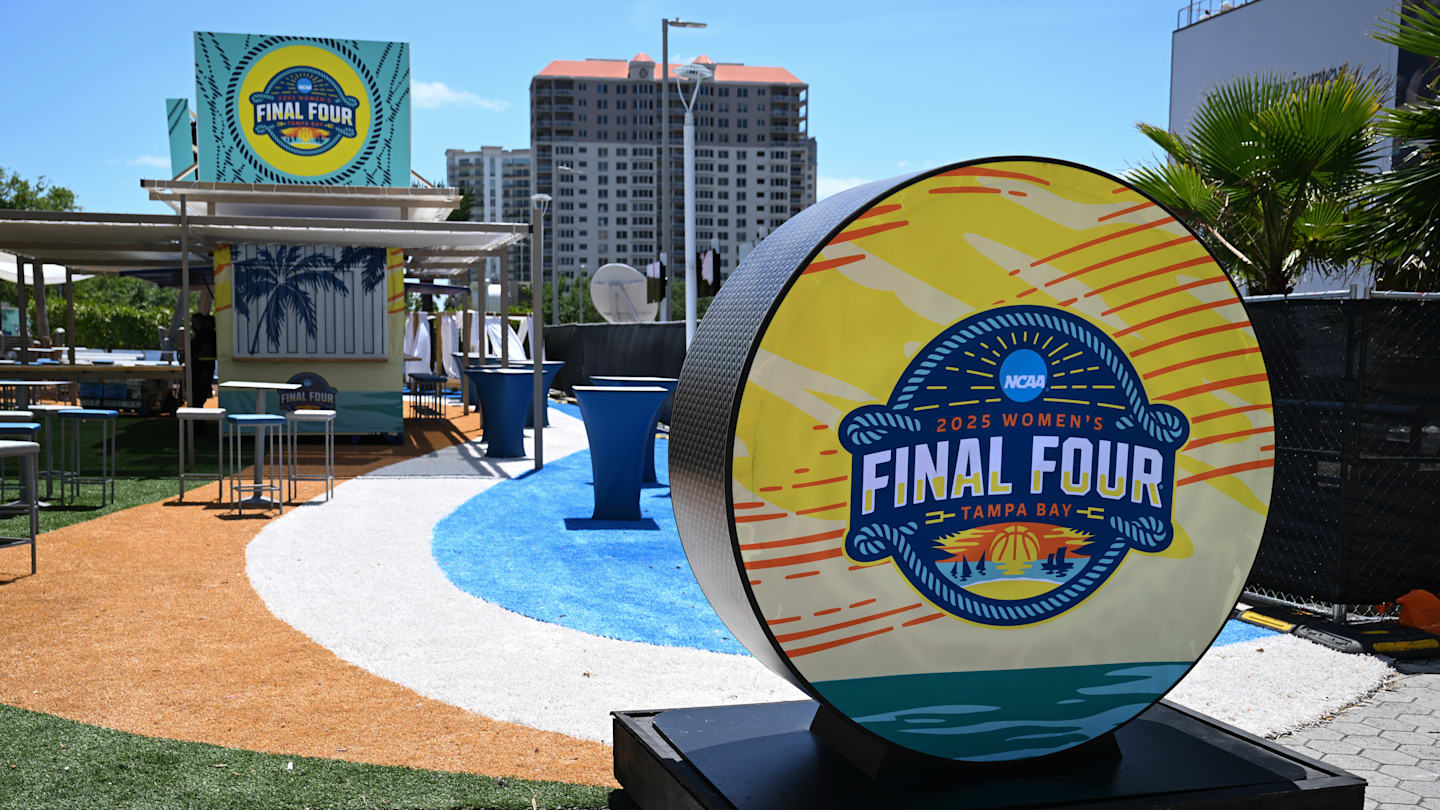
Over the years, the transfer portal and NIL have completely changed the landscape of college sports. The portal has become the professional sports version of free agency, while NIL funds have varied from school to school, something Virginia Tech has found out over time.
When it comes to rules and regulations surrounding NIL, fans have been paying close attention and listening to what has been going on with the house settlement, which brings rules regarding NIL and also supplies revenue sharing. It has been taking some time for a ruling to officially come down, and that decision came down late Friday night.
Judge Claudia Wilken officially signed off on the final approval to the proposed settlement.
The case could officially and finally shape college sports forever, and rules regarding NIL, the transfer portal, and revenue sharing. This decision by Judge Wilken all but eliminates concerns going forward, and now it’s up to the schools to go to work.
“Despite some compromises, the settlement agreement nevertheless will result in extraordinary relief for members of the settlement classes,” Wilken wrote in her 76-page final opinion. “If approved, it would permit levels and types of student-athlete compensation that have never been permitted in the history of college sports, while also very generously compensating Division I student-athletes who suffered past harms.”
Athletes will be allowed to be paid by their schools, and each program will be granted just over $20 million to share with athletes across a number of sports. Schools agreed to grandfather the scholarship athletes, which allows athletes to remain and not risk losing their scholarships currently. The NCAA will also pay former athletes $277 million per year over the next 10 years to compensate them for damages.
This decision finally paints a picture of what things will look like going forward, which is what college athletes, coaches, and fans have been waiting for.
NIL
The NIL era just took a big step, and some Georgia fans aren’t celebrating
The recent announcement on the NCAA settlement paving the way for players to be directly paid by schools has been met with mixed emotions already. Obviously, players who are in line to get a share of the $2.8 billion coffers are quite happy. Georgia fans, however, are looking at it in a different light and […]

The recent announcement on the NCAA settlement paving the way for players to be directly paid by schools has been met with mixed emotions already. Obviously, players who are in line to get a share of the $2.8 billion coffers are quite happy.
Georgia fans, however, are looking at it in a different light and see this as potentially damaging recruiting and roster building, putting unfair shackles on schools who have traditionally led the pack.
Beyond the settlement for former players dating back to 2016, current players can now be paid directly by the school, however there will be a cap on the amount allowed. That could mean that stacking a huge recruiting class of five and four-star players could be a thing of the past.
Some Georgia fans let their feelings be known.
Other fans voiced concern with this new model, calling it “unsustainable”, “damaging to recruiting”, and “forced parity”.
The feelings that this will damage Georgia’s recruiting are probably valid, but Kirby Smart has also been a master at navigating changes in the landscape of college football. His recruiting approach to building relationships, selling being on a winning team over being a big fish in a little pond, and NFL development will need to be adjusted for sure.
While this new system won’t mean the end of titles in Athens, it may bring an end to any one team dominating the sport for an extended period of time. In other words, RIP college football dynasties.
NIL
College athletics as we know it is over
Judge Claudia Wilken announced the approval of the House v. NCAA settlement Friday in the U.S. Northern District of California. It’s a landmark decision that’s likely to usher in a revenue-sharing era among college sports, effectively allowing schools to pay their athletes. The ruling also created a clearinghouse for third-party NIL deals, which will have a say over […]
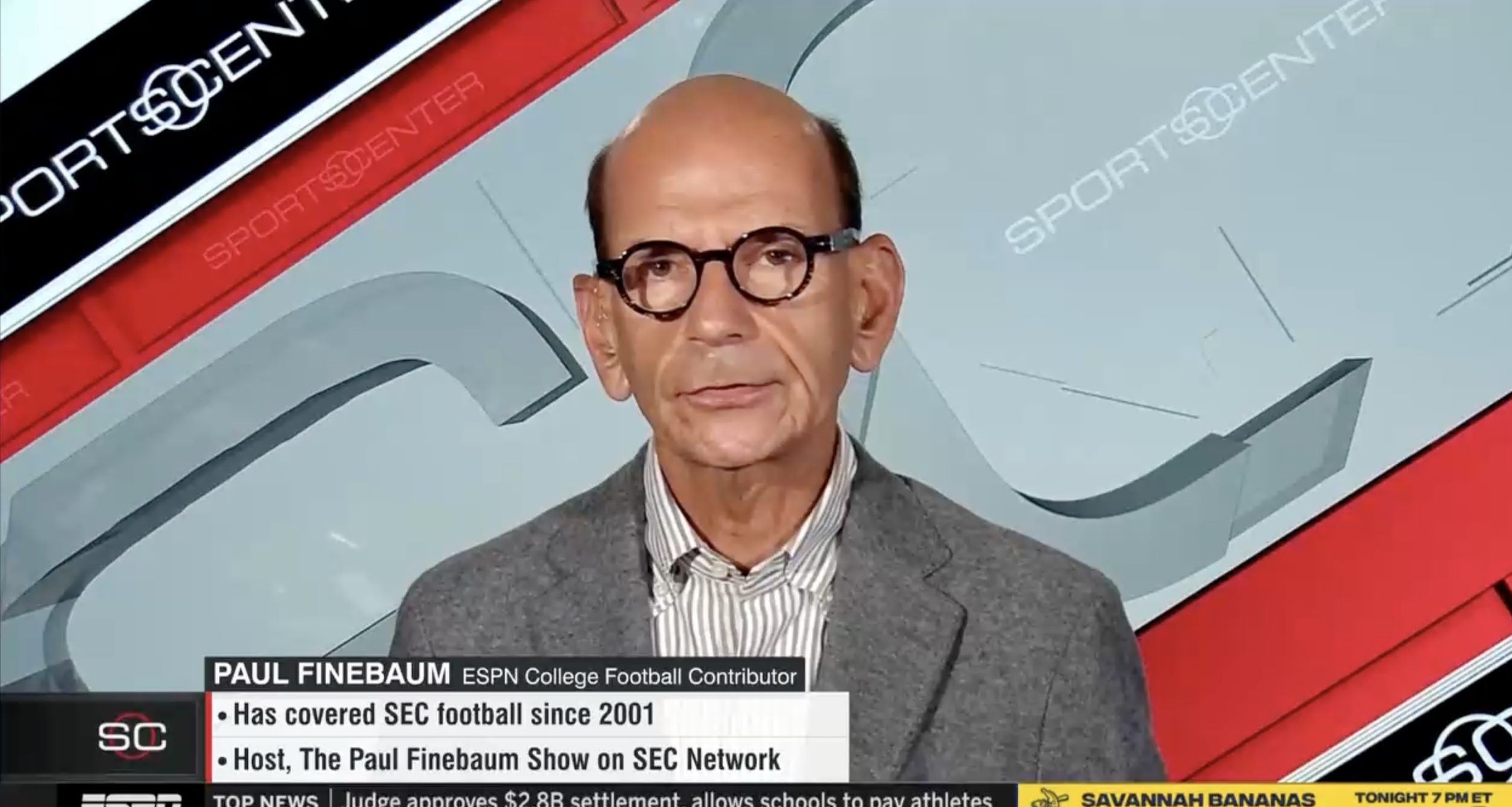
Judge Claudia Wilken announced the approval of the House v. NCAA settlement Friday in the U.S. Northern District of California. It’s a landmark decision that’s likely to usher in a revenue-sharing era among college sports, effectively allowing schools to pay their athletes.
The ruling also created a clearinghouse for third-party NIL deals, which will have a say over NIL arrangements of $600 or more.
“Despite some compromises, the settlement agreement nevertheless will result in extraordinary relief for members of the settlement classes,” Wilken wrote in her 76-page opinion. “If approved, it would permit levels and types of student-athlete compensation that have never been permitted in the history of college sports, while also very generously compensating Division I student-athletes who suffered past harms.”
We still have a long way to go before we fully understand the impact on college sports, especially football. One person who is not optimistic is ESPN and SEC Network host Paul Finebaum.
“I couldn’t help but think back about 10 years ago, when Mark Emmert, then the President of the NCAA, essentially said college athletes will be paid over my dead body. He’s still alive, but the NCAA is dead,” Finebaum said during an appearance on SportsCenter. “It may still be in existence. We’re still having tournaments, such as the Women’s World Series and the Men’s Baseball Tournament, but the NCAA, as we know it, is gone. They literally have no jurisdiction whatsoever other than to be tournament directors.
“This was supposed to level the playing field. Everybody pays the same into the kitty and then divides it up, but it will do anything but. The big will get bigger, and the small schools will simply slip away… Other than maybe in in basketball-only conferences that can use all that money for basketball, as opposed to, like, Alabama and Georgia and Ohio State, where they have to split up $20.5 million.”
Starting July 1, schools will be able to share $20.5 million with its athletes. Football is expected to receive 75%, followed by men’s basketball (15%), women’s basketball (5%) and all remaining sports (5%). Power Four football programs will have between $13 to $16 million to spend on rosters during the 2025 season under the settlement agreement.
Finebaum, known for his devotion to SEC football, views this situation as one that could jeopardize the momentum of women’s sports and non-revenue sports.
“The real casualty of all this, I believe, is going to be the one part of college athletics that has grown so much,” said Finebaum. “We watched the Women’s World Series last night, a million-dollar pitcher, by the way, for Texas Tech. Women’s sports, I think, are going to suffer from this. If you’re one of these Ohio States or Alabamas, and you’re dividing up $20.5 million, you know where most of it’s going, it’s going to football. That’s really a major casualty.
“College athletics did this to themselves. They’re not really suffering for it, because it’s a billion-dollar industry, but it’s going to be very uneven in the future. I think, at some point, fans are going to start tuning out. There’s such an existential threat to what we grew up loving, and we still do. It’s not going to be the same anymore.”
Finebaum is one of several prominent voices who see player compensation as the end of college athletics as we know it. Others might say that’s only fair considering the severe imbalance in profits generated by those institutions on the labors of those players.
College sports are indeed changing and getting more professional. However, they’ve been professional for a long time; the people in charge are only now being forced to acknowledge it.
NIL
We’d Love It If You Filled Out This DBR Podcast Survey And You Might Enjoy It Too
The DBR wants your help! We are partnering with our good friends on the Duke Basketball Roundup podcast for a fun summer activity. It is a Duke fan survey to gauge everything from how you became a Duke fan, to your favorite Duke player, to your feelings about NIL and the transfer portal, and much, […]
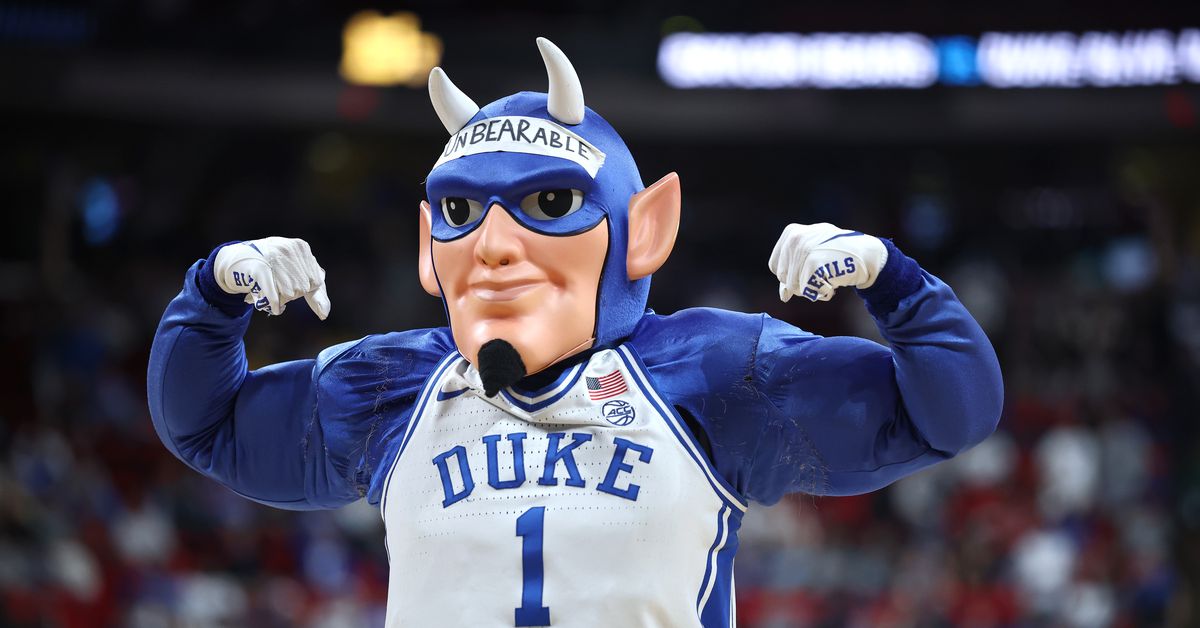
The DBR wants your help! We are partnering with our good friends on the Duke Basketball Roundup podcast for a fun summer activity. It is a Duke fan survey to gauge everything from how you became a Duke fan, to your favorite Duke player, to your feelings about NIL and the transfer portal, and much, much more.
It contains about 20 questions but shouldn’t take more than a few minutes to fill out. A word of advice — don’t ponder too much, go with your gut on each of these Qs.
The Duke Basketball Roundup will be revealing the answers on their podcast starting in a couple weeks and we will publish the results here too. This is a great way to talk about what we love about Duke and what maybe worries us too… And without you it won’t be complete.
So click here and tell us all about your relationship with Duke hoops!
NIL
IU basketball leans on vast NIL resources in rebuild amidst changed market
To build long-term stability, IU coach Darian DeVries wants to ‘simplify’ the process Indiana basketball coach Darian DeFries describes how he see building long-term stability. BLOOMINGTON — Indiana basketball coach Darian DeVries basically had to start from scratch when putting together his roster for the 2025-26 season. The lone holdover from Mike Woodson’s final year as […]
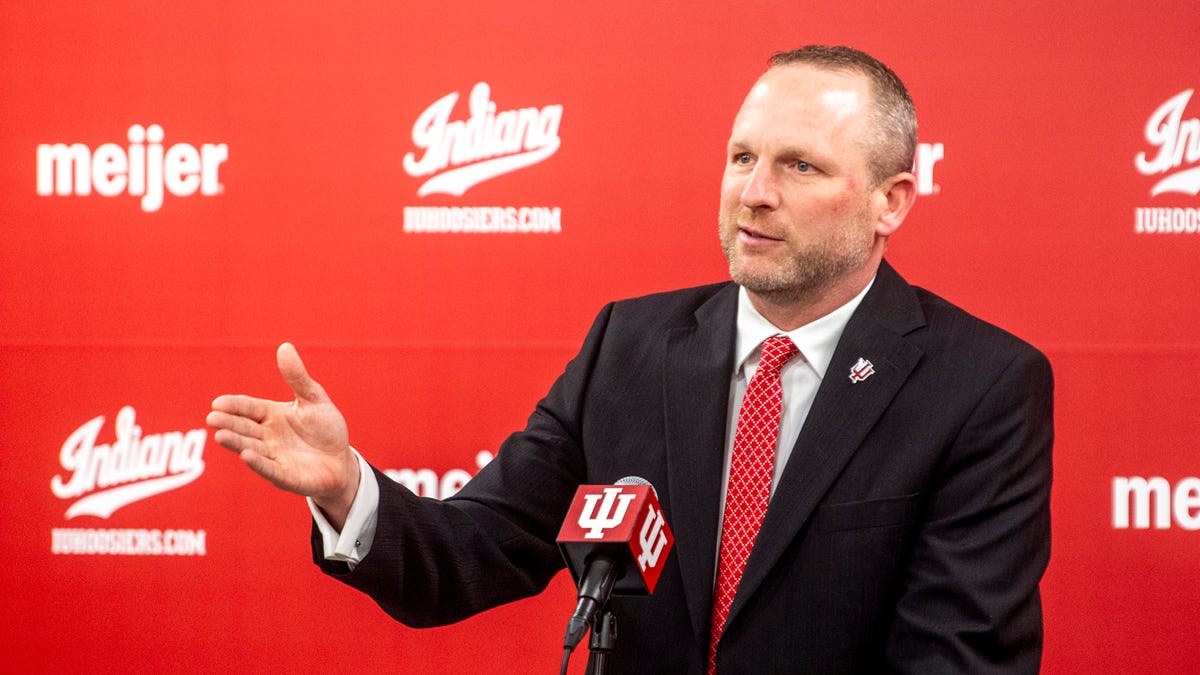
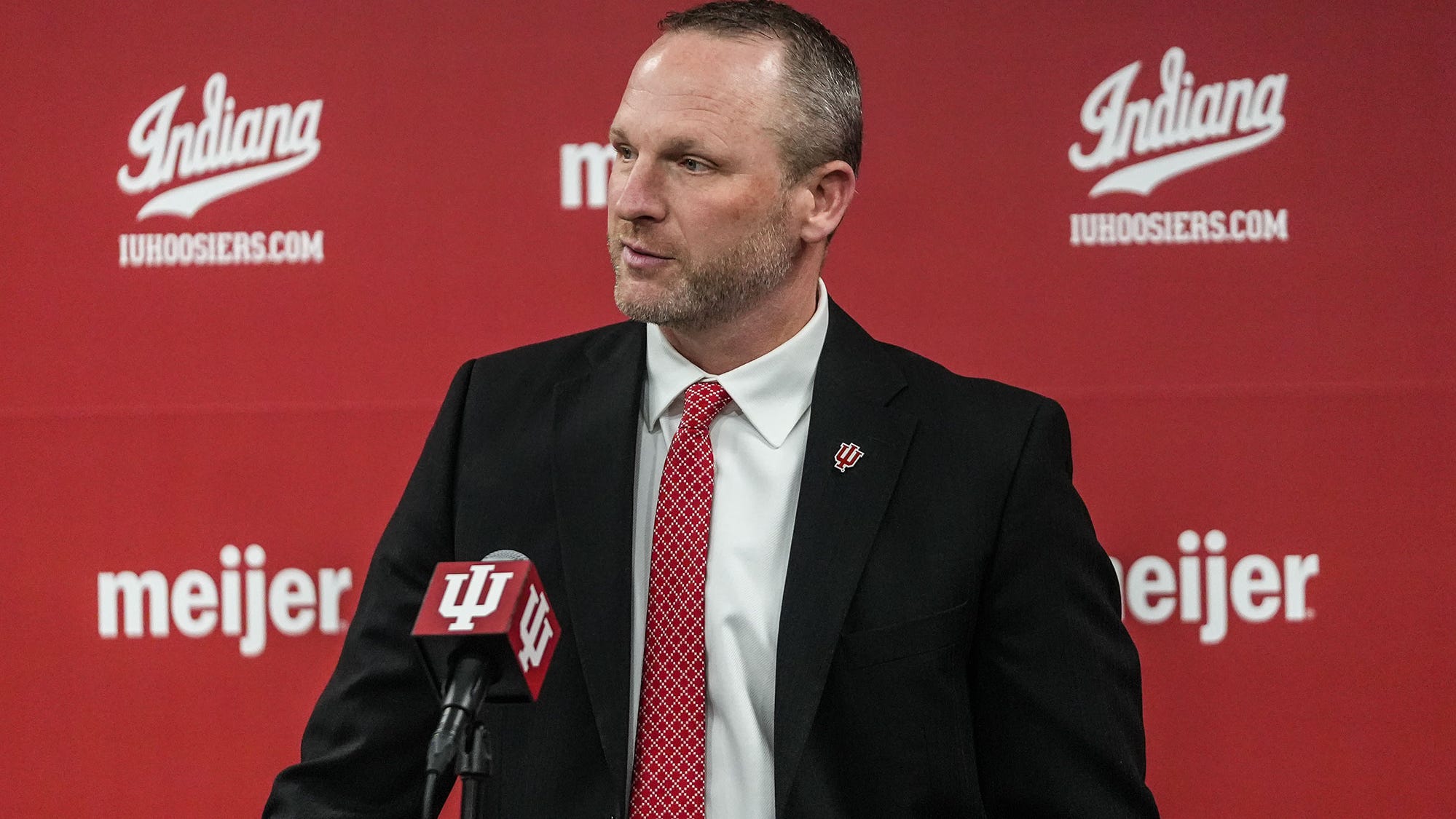
To build long-term stability, IU coach Darian DeVries wants to ‘simplify’ the process
Indiana basketball coach Darian DeFries describes how he see building long-term stability.
BLOOMINGTON — Indiana basketball coach Darian DeVries basically had to start from scratch when putting together his roster for the 2025-26 season.
The lone holdover from Mike Woodson’s final year as coach was a 2025 signee (Trent Sisley) who hadn’t even arrived on campus yet.
DeVries had plenty of experience with the process, having navigated similar rebuilds at Drake and West Virginia. Still, there was a noticeable difference this time around thanks to the House v. NCAA case that was finalized on Friday night.
The settlement in the case will usher in a new era of revenue sharing, along with an NIL clearinghouse that will vet deals. There was a rush to sign players to front-loaded NIL deals that weren’t subject to review before a final approval hearing back in April and that created a much different market than the one DeVries face during those previous rebuilds.
“I think the biggest thing, as everybody found out quickly, was the NIL piece jumped dramatically in terms of what rosters we’re going to take to kind of put together,” DeVries said at a recent booster event. “And thankfully, we’re at a place that was very supportive, and then have some great donors in place and people in place to help facilitate that.”
Those resources helped DeVries lock down 10 transfers, including three players (Tucker DeVries, Lamar Wilkerson and Reed Bailey) ranked in the top 100, per 247 Sports.
“We were able to adjust on the fly as we were putting together a roster,” DeVries said. “And then anytime you’re in the portal, those things can get a little tricky, as you’re trying to put that many guys on a roster at one time.”
It’s nothing new for Indiana — Woodson had a lucrative warchest after the 2023-24 season that helped him land some of the highest-rated players in the country. The school is also expected to be near the top of the conference in how much money from its anticipated $20.5 revenue-sharing budget it dedicates to men’s hoops.
“Just like last year, we’ll be highly competitive,” Indiana athletic director Scott Dolson said back in March. “Not just in our league, but nationally.”
That commitment came at a crucial time with IU facing stiff competition from teams across the country for top talent. Five other teams in the Big Ten (Iowa, Maryland, Minnesota, USC, and Washington) signed eight or more transfers.
Michael Niziolek is the Indiana beat reporter for The Bloomington Herald-Times. You can follow him on X @michaelniziolek and read all his coverage by clicking here.
NIL
Pete Thamel reveals which College Football Playoff format is ‘not going to happen’ after spring meetings
ESPN’s Pete Thamel got out in front of the College Football Playoff model that will not happen moving forward. Anything that has multiple autobids for certain conferences makes things a little more complicated for the average fan. That’s what Thamel reported and could infer about where the College Football Playoff expansion is going. While there […]
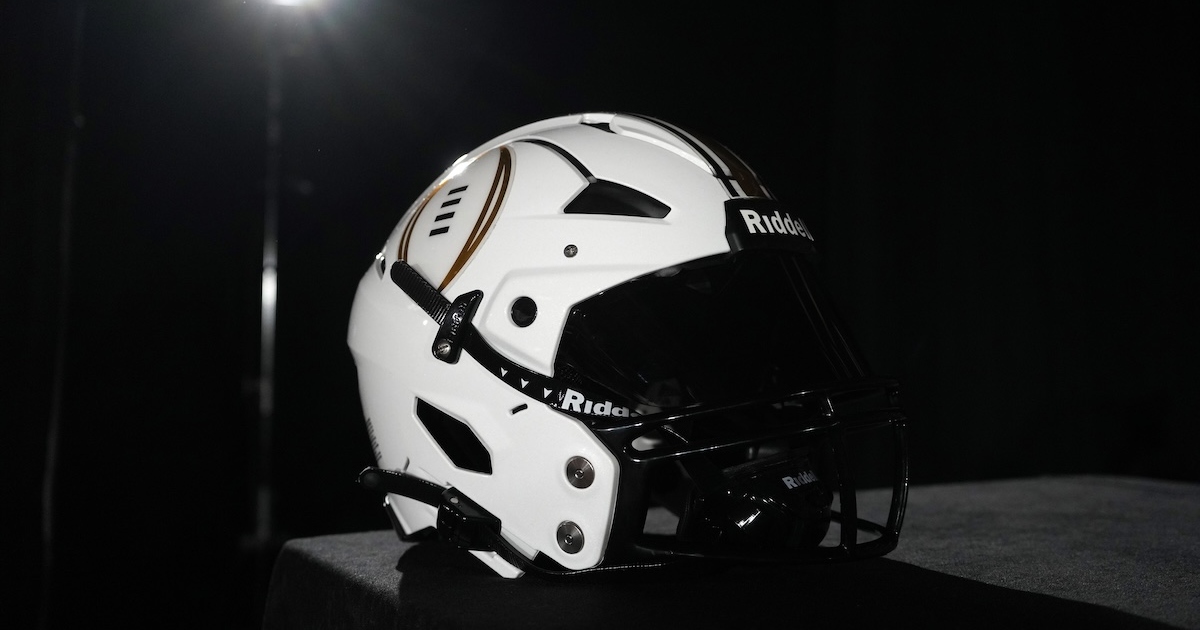
ESPN’s Pete Thamel got out in front of the College Football Playoff model that will not happen moving forward. Anything that has multiple autobids for certain conferences makes things a little more complicated for the average fan.
That’s what Thamel reported and could infer about where the College Football Playoff expansion is going. While there are rumblings of 14 or 16 teams, it’s likely going to be the latter.
Now how do you determine qualifiers? Well, keep it simple, stupid!
“The 4, 4, 2, 2-thing is not going to happen,” Thamel said on The College GameDay Podcast. “And certainly there’s some ways to go and things to figure out, especially the strength of schedule stuff … The point of the playoff expanding … College football is an unbelievable, regional sport that became national right around the BCS … For all its flaws, it did nationalize sport. So one of the challenges I’ve seen the sport have, trying to capture the I-95 sports fan, right? Boston, New York, Philly, you want to bring them in the same way you bring them in on the first Thursday of the NCAA tournament …
“You want to capture that casual fan, because you have the guy in Birmingham, you can’t get any more people to watch in Birmingham. And the idea of the 4, 4, 2, 2, 1, 3, if you’re sitting at the bar in Southie, trying to talk about Notre Dame’s playoff chances, it’s just like your head would explode, right?”
Good luck trying to figure that out if you’re a casual football fan. The College Football Playoff, as Thamel describes it, is trying to appeal to those from non-traditional college football areas. If you can make it look like the NFL, you might have a chance.
“It’s not Good Will Hunting calculus, but it’s just not intuitive to a sports fan,” Thamel said. “So basically, five plus 11 is like, we’re gonna take the conference champions and the rest of the best teams, which to me, is just a lot smoother if you’re trying to explain this …
“We get so in the weeds sometimes, and we talk about these terms and we socialize them … But I just think, as this transitions to five and 11, which it appears on the trajectory to do so and probably for ‘26 but not certain, I just think for the sport in general, a clearer idea of where it’s going makes sense.”
-
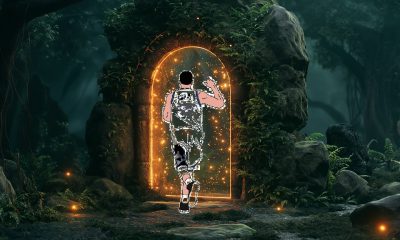
 College Sports3 weeks ago
College Sports3 weeks agoPortal Update – Basketball and Gymnastics Take Hits
-

 College Sports3 weeks ago
College Sports3 weeks agoPortal Update – Basketball and Gymnastics Take Hits
-
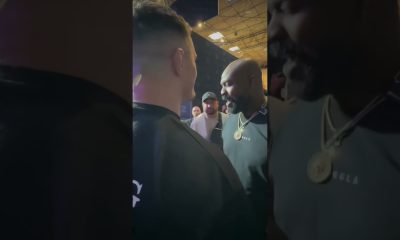
 Professional Sports3 weeks ago
Professional Sports3 weeks agoJon Jones answers UFC retirement speculation as fans accuse champion of 'holding the belt …
-

 Health3 weeks ago
Health3 weeks agoBYU women's basketball guard injures ACL twice
-

 NIL2 weeks ago
NIL2 weeks ago2025 NCAA Softball Tournament Bracket: Women’s College World Series bracket, schedule set
-
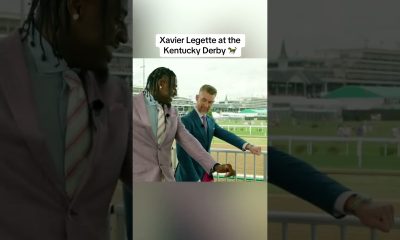
 Youtube3 weeks ago
Youtube3 weeks agoXavier Legette taught Marty Smith his signature celly
-
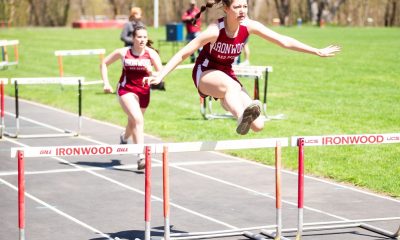
 High School Sports3 weeks ago
High School Sports3 weeks agoToday in the MHSAA
-

 College Sports3 weeks ago
College Sports3 weeks agoNCDC Commitment Profiles: Cyclones’ Martins Moving On to Saint Anselm College • USPHL
-
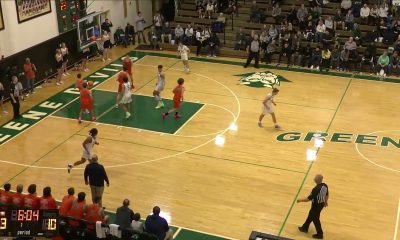
 College Sports3 weeks ago
College Sports3 weeks agoIU basketball recruiting
-
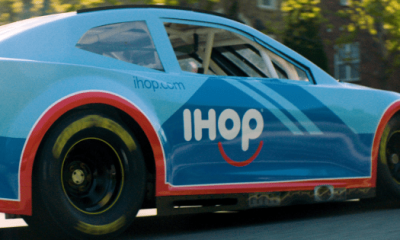
 Motorsports2 weeks ago
Motorsports2 weeks agoWhy IHOP Rode With Dale Earnhardt Jr. In Amazon NASCAR Debut

































